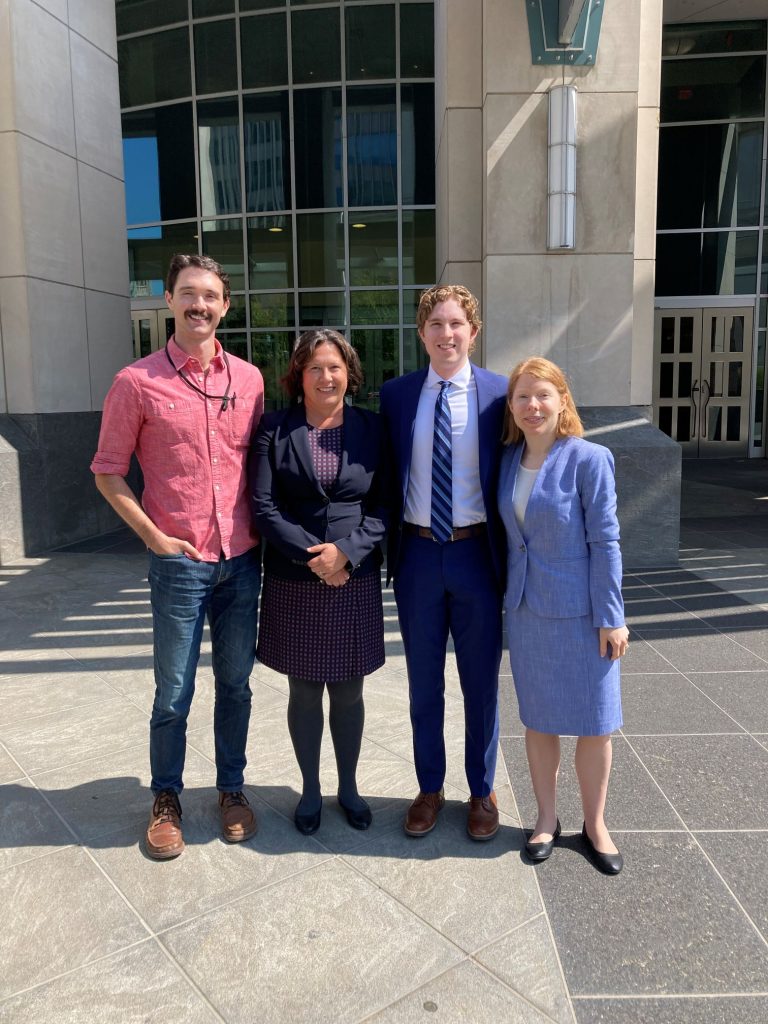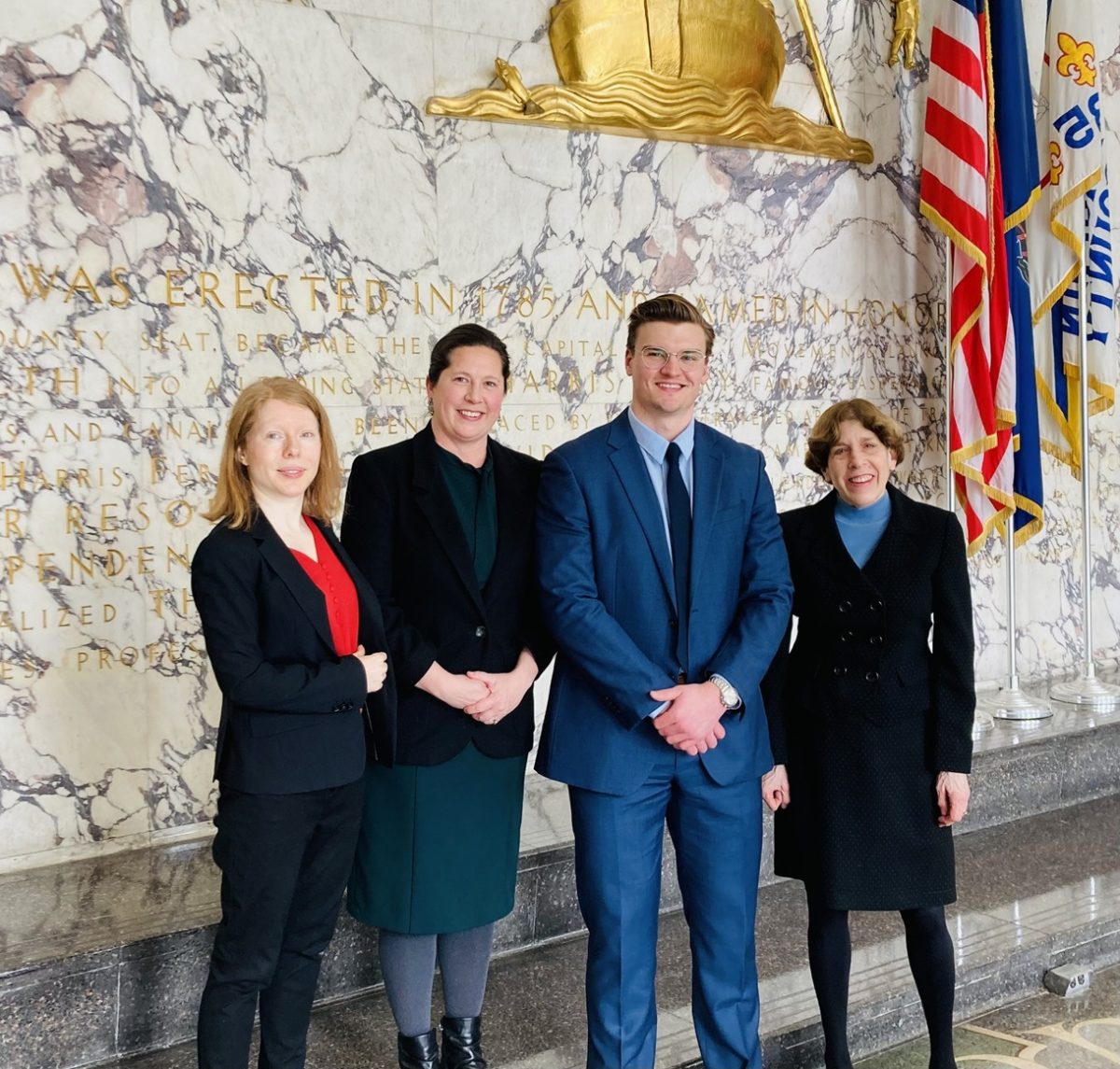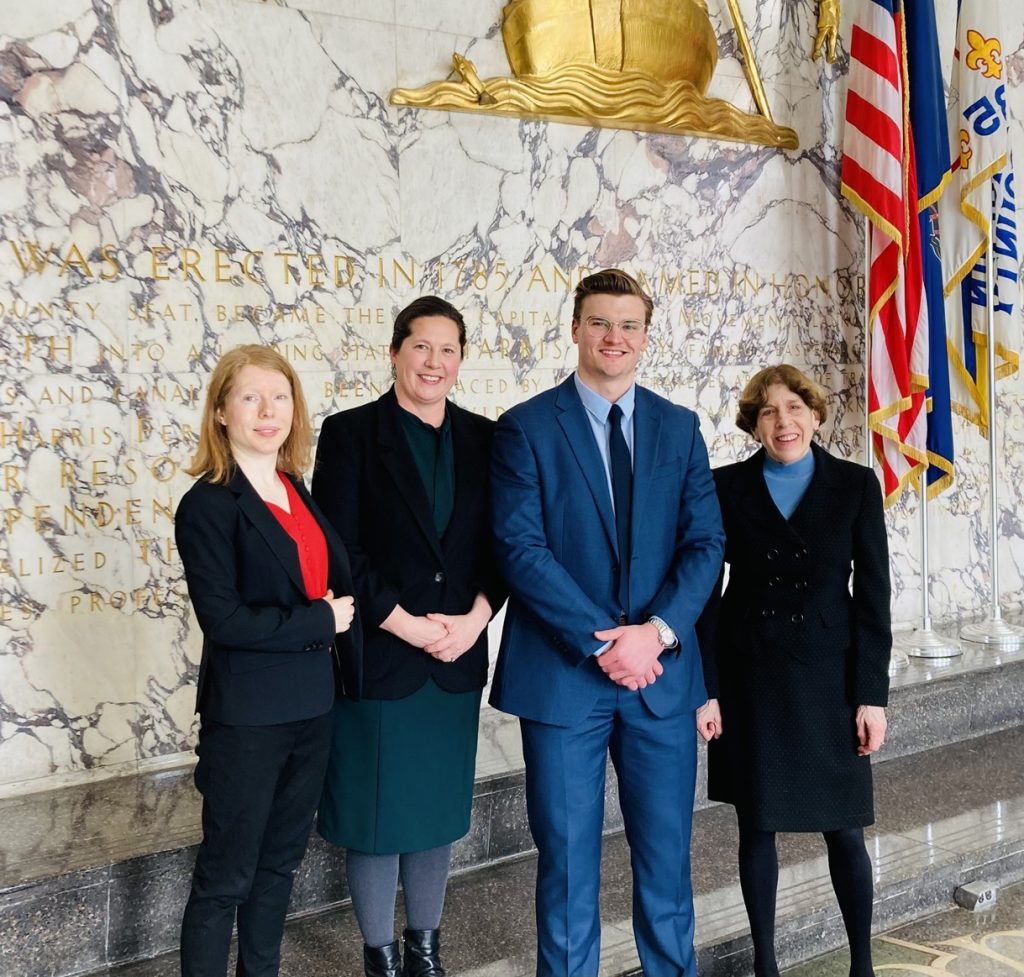The First Amendment Clinic won an important appeal on November 26 that strengthens New York journalists’ ability to protect their anonymous sources and the rest of their newsgathering. The appeals court unanimously held that a subpoena of Joseph Abraham, the former managing editor of the Sullivan County Democrat, had to be quashed because the party that issued the subpoena failed to meet the strict test imposed by the New York Shield Law.
The Shield Law protects journalists against being forced to disclose any unpublished information, including information about an unnamed source, even if the source was not expressly promised confidentiality. The law sets out a stringent test a party must meet before it can enforce a subpoena against the journalist. The test requires the party to show that the information is “highly relevant” to the party’s legal claim, “critical or necessary” to the claim, and not available from any other source. Here, the appeals court held that the party failed to meet that test.
In its ruling last week, the Third Department Appellate Division quoted New York’s highest court to emphasize that the Shield Law “codifies this state’s ‘consistent tradition of providing the broadest possible protection to the sensitive role of gathering and disseminating news of public events.’”
“We are heartened that the Appellate Division reversed the lower court and reaffirmed the strength of the Shield Law,” said Michael Linhorst, the clinic’s local journalism attorney.

Michael Linhorst
“The Shield Law provides critical protection for the free press,” Linhorst said. “Without it, journalists would risk being forced to testify whenever they covered a controversial issue —they would become unpaid investigators for the litigants, taken away from their work of reporting for the public.”
The case is Anthony v. Haas et al., a defamation lawsuit in which neither Abraham nor the Sullivan County Democrat are defendants. The suit relates to an investigation the Town of Highland conducted into Marc Anthony, who was then the town constabulary. The newspaper obtained a copy of the town’s investigation report that had not yet been made public, and it published an article about the investigation that referenced an unnamed source. Anthony later sued a town board member, alleging defamation related to the investigation, and he attempted to subpoena Abraham for documents and testimony about the identity of the newspaper’s source, apparently hoping to show that the defendant provided information to the newspaper.
On behalf of Abraham and the Sullivan County Democrat, the clinic asked the Sullivan County Supreme Court to quash the subpoena. The clinic initially succeeded in quashing it on procedural grounds. Later, the plaintiff re-issued the subpoena, and the Supreme Court denied the clinic’s second motion to quash, concluding that the plaintiff had overcome the Shield Law’s test for overcoming the qualified privilege. As the appeals court recognized, this conclusion was incorrect.
The Appellate Division held that because the plaintiff could obtain the information he wanted from the source who spoke to the newspaper rather than the newspaper itself, “Plaintiff cannot show that the information is unavailable from another source,” and so failed to meet the Shield Law’s three-part test. It also faulted the lower court for failing to make the findings of fact on the record in support of its decision that are required by the Shield Law.


